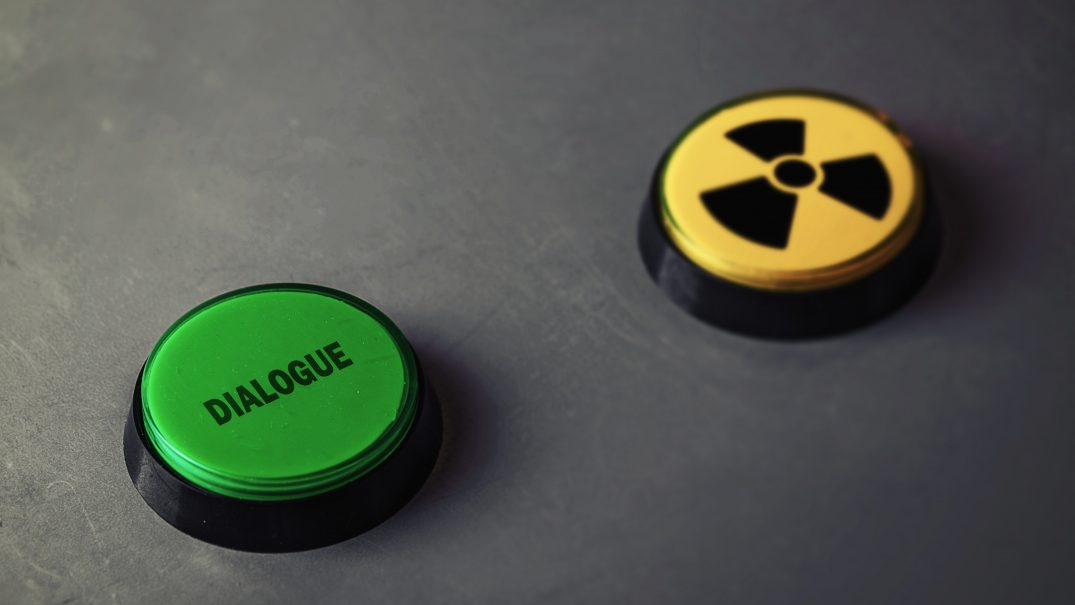
Amid the optimism and buzz around North Korean leader Kim Jong-un's impending meetings with his South Korean counterpart Moon Jae-in and U.S. President Donald Trump, it is easy to think that the international community is getting closer to achieving denuclearization on the Korean Peninsula.
After all, according to South Korea and China, Kim has explicitly expressed his commitment to denuclearization and to suspending nuclear or missile tests most recently reported by Chinese state media following Kim's unprecedented trip to Beijing and meeting with President Xi Jinping.
But the reality is that we are nowhere close to resolving the North Korean issue.
It is highly unlikely that North Korea will ever fully give up its nuclear programme to attain complete, verifiable and irreversible denuclearization, or CVID. There are three compelling justifications for this assertion.
First, it is not in North Korea's national interests to agree to CVID, because it will lose its only bargaining chip for future negotiations, should it want to extract further economic or political concessions from the international community. This includes lifting sanctions, the provision of monetary aid, and the transfer of food and oil.
Without nuclear weapons, the United States would lose interest in sitting at the same table as North Korea. This is ironically proven by the readiness at which Trump agreed to meet Kim, following the escalating tensions over Pyongyang's nuclear and missile tests in late 2017.
Denuclearization would also mean losing strategic security leverage over the U.S. in the event Washington decides to launch an offensive across the 38th Parallel. Today, Pyongyang can threaten a retaliatory nuclear attack on the U.S., even though its capabilities to do so remains unclear. But implementing CVID would strip Kim of the ability to deter a U.S. strike on North Korea. For national security reasons, denuclearization is a bad move that opens Pyongyang to potential U.S. military coercion.
Second, while there is no democracy in North Korea, Kim remains accountable to his people for the Byungjin or parallel development' policy of progressing on the dual thrusts of economic development and nuclear weapon proliferation a policy Kim adopted in 2013.
At the plenary session announcing this policy, Kim had branded it as essential given the current world order and a lawful prerequisite for revolutionary development. Having committed to Byungjin as Pyongyang's strategic policy guideline, it would be difficult for Kim to walk back on his decision now. The optics of Kim giving up nuclear weapons after negotiations with the enemy' the U.S. would decimate his domestic legitimacy among his people and the North Korea ruling elite a huge no-no in a country where leaders are revered for their deity-like decision-making.
Third, the history of Pyongyang's nuclear programme casts serious doubts on the realistic chances of Kim following through on any promises to achieve CVID.
Throughout the decades, agreements and institutions proposed to discuss, implement and monitor denuclearization have all failed. This includes the U.S.-North Korea Agreed Framework of 1994 and the subsequent Six-Party Talks brokered by China.
In these previous negotiations, North Korea had sought concessions in exchange for denuclearization, only to continue with its nuclear weapons programme after receiving the benefits. Pyongyang's consistent pattern of reneging on agreements and a flagrant disregard for the sanctity of international negotiations suggests that there is no reason to expect a different outcome for the upcoming Trump-Kim meeting.
There is, however, no reason for the U.S. and its allies to shy away from negotiations, even though it is unlikely that North Korea will see through any agreed CVID. While positioned as talks meant to persuade Kim to denuclearize, the discussions serve the broader U.S. objectives of lowering tensions on the Korean Peninsula to avert a military solution and reassuring its South Korean and Japanese allies that the U.S. remains committed to achieve denuclearization.
From Kim's perspective, the ability to secure a meeting with the leader of the free world is a feat in and of itself something that his grandfather and father failed to do. The domestic political gains he would accrue by just attending the meeting would be astronomical.
In other words, for both the U.S. and North Korea, the outcome of the meeting matters less than the fact that the meeting happened. The diplomatic and domestic posturing below the facade of the meeting is more important than what will be discussed. It is therefore prudent for Washington to be clear-eyed and not indulge in wishful thinking about orchestrating a breakthrough where Pyongyang implements CVID in exchange for any incentives Washington can cobble up. North Korea has simply no interest to do so.
Jansen Tham is a 2nd year Masters in Public Policy (MPP) student at the Lee Kuan Yew School of Public Policy, National University of Singapore.